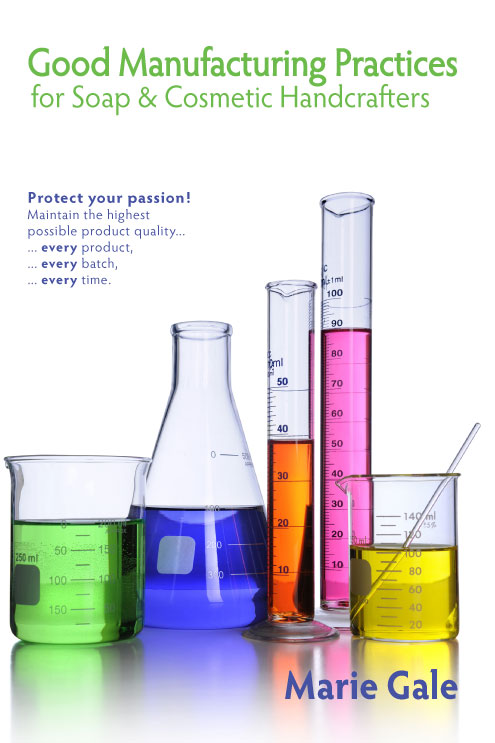Louisiana is another state that has some regulations for cosmetic manufacturers, over and above what the FDA requires. I recently did some looking into the laws and regulations for Louisiana; this post details what I found.
Dept of Health and Hospitals
The Food and Drug Unit in the Office of Public Health under the Louisiana Department of Health and Hospitals seems to have jurisdiction over not just food and drugs, but also cosmetics and cosmetic manufacturers. They have published a document, Basic Requirements for Prospective Cosmetic Manufacturers, which details (in pretty official language) what you should know and the applicable regulations.
Cosmetics … and Soap
The definition of a cosmetic in Louisiana law is very similar–but NOT the same as–the definition used by the FDA.
Directly from the regulations:
“Cosmetic” includes all substances and preparations intended for cleansing, altering the appearance of, or promoting the attractiveness of a person. The term includes soaps only when medicinal or curative qualities are claimed by the use thereof.
Louisiana Revised Statues Title 40, Chapter 3, Food and Drugs, 602(2)
There’s a notable difference between Louisiana and the FDA when it comes to the definition of soap, and when it is or is not exempt from the definition of a cosmetic. However, for either one, if there aren’t any cosmetic claims made, then soap isn’t considered a cosmetic. That being the case, if you are ONLY making soap, and are ONLY calling it “soap” and are NOT making any cosmetic claims for it, then you probably don’t need to register as a cosmetic manufacturer in Louisiana.
Permits
Anyone operating a facility engaged in manufacturing cosmetics in Louisiana must have a permit to operate. Permits are issued by the State Health Officer though the Food and Drug Unit of the Office of Public Health. It took a little searching, but I found a packet of information which contains the forms that need to be submitted. It looks like the forms for cosmetics are the same as (or very similar to) the forms for food and drug manufacture—so they are detailed and complicated.
There is a fee of $175 for businesses with less than $500,000 gross annual sales. The permit must be renewed annually.
The required forms (which are described below) may seem like overkill for a handcrafter or home-based business, but they do make sense for a full-on manufacturing factory. Protecting the water and sewer systems is extremely important. When you are trying to figure out how to get through the paperwork, remember that it is designed for big companies, so try not to get too frustrated.
Form FD-1B Plans Review Questionnaire
This is the general overview form (name, address, contact, etc.). It requests a set of plans and specifications for the facility be made available to the inspector. I expect that this is primarily to ensure that good manufacturing practices are being (or can be) followed. The form also requires the name of your water, sewer, and garbage/refuse disposal companies. I didn’t see anything that indicates that manufacturing can’t take place in a home or residence.
Form FD-1E Parish Utility Letter
You are required to get a “Utility No Objection Notice” completed by the local utility company saying that they have no objection to your manufacturing facility. It mostly has to do with wastewater disposal and potable water source. If you are dealing with a person from the utility company that is not familiar with making soap or cosmetics, you may need to explain about what may go down the drain. You may need provisions for ensuring that un-neutralized lye doesn’t end up in the sewer system.
Inspection
It appears that an inspection is likely in order to have your facility approved for manufacturing cosmetics. The information on their website is somewhat confusing, but it looks like you can find your local office on this page. The main concern seems to be that there are sufficient procedures in place to ensure that your product(s) won’t become contaminated or adulterated. The FDA GMP Inspection Checklist and the FDA Cosmetic GMP Draft Guidance would be good places to start to make sure you are ready for the inspection. The local inspector may have more information about what is expected, especially from small, home-based businesses.
A Temporary Permit to Operate is issued once the plans have been reviewed, approved, and a pre-operational inspection is passed.
Product Registration
Louisiana requires that all cosmetic products be registered. Before a full Permit to Operate is issued, all products must be registered, which includes submitting the labels for review to ensure they are correct.
Form FD-9 Application for Registration
The Application for Registration form requires basic contact information, which must be EXACTLY AS IT APPEARS ON THE LABEL of the product(s).
A product list and electronic or paper copies of labels or label proofs must be attached to and submitted with the form.
There is a fee of $27 per product, with a maximum of $270. Payment must be made by check or money order (no online or credit card payments). Registrations must be renewed annually.
Adulterated and Misbranded Cosmetics
Similar to the federal regulations, cosmetics manufactured in Louisiana may not be adulterated or misbranded. The definitions are basically the same as the federal definitions and the requirements for cosmetic product labels for Louisiana are the same as for the FDA.
Good Manufacturing Practices
Good Manufacturing Practices (“GMP”) are defined the Title 51, Public Health-Sanitary Code, Part VI. Manufacturing, Processing, Packing and Holding of Food, Drugs and Cosmetics, but the regulations only seem to have specific GMP requirements for food and drugs. Like the FDA, even though GMP are not in the regulations for cosmetics, there are obviously standards which should be met to ensure that products are not adulterated or misbranded.
The FDA GMP Inspection Checklist and the FDA Cosmetic GMP Draft Guidance are good places to start learning about GMP.
Records
Cosmetic manufacturers engaged in interstate commerce (in other words, if you are selling across state lines), must keep records showing what was shipped and to whom. I expect that your invoices or other sales documentation would be sufficient. The department has the right to inspect your records.
Inspections / Penalties
There is a provision that “in order to prevent commerce in adulterated or misbranded food, drugs, devices or cosmetics and to safeguard the public health and to prevent deceit upon the purchasing public” the Department has the right to enter any establishment where cosmetics are manufactured, processed, packed or held, or any vehicle used to transport them, and to inspect the factory, establishment, vechicle and all pertinent equipment, materials, containers, and labeling. And no owner or operator may refuse a reasonable request.
In other words, the state has the right to enter and inspect any place where you manufacture cosmetics.
Where product is found to be adulterated or misbranded, the department can seize the product or tag it so it can’t be sold. Normally, though, they would (like the FDA) provide notice and allow the person/manufacturer to correct the issues. However, where there are uncorrected major violations that involve gross deception or imminent danger to health, there are potential penalties of a fine of not more than $1,000 and/or not more than 1 year jail time. For subsequent offenses, it’s up to $3,000 and 2 years or both. Of course, with handmade cosmetics you’d have to work very hard to make products that caused imminent danger to health AND you’d have to be in blatant disregard of all attempts to get it corrected.
Summary
- If you are making cosmetics in Louisiana, you need a permit for your “manufacturing facility” BEFORE you start making products. It costs $175 per year.
- Each cosmetic product you sell needs to be registered with the state BEFORE you start selling it. $27 per product (maximum of $270) per year.
- The Food and Drug Unit of the Office of Public Health has the right to inspect your facility upon request.
- You are responsible for ensuring that your products are not adulterated.
- Products must be correctly labeled (and the labels must be included with the product registrations).
Actual Experience
updated March 27, 2016
After writing and publishing this post, I was contacted by a woman who has worked with the Louisiana Small Business Development Center to get her business set up in New Orleans. They helped her get through all of the basic steps (getting an EIN, registering her business with the Louisiana Secretary of State, getting a sales tax ID, etc.). She specifically stated that she would be making home-made cosmetics—and was never referred to the Food and Drug Unit to get registered.
So, either the regulations for cosmetic manufacturers are not well known, or they are intentionally not being applied to home-based businesses—at least in this case.
Your Experience?
If you are from Louisiana and are making cosmetic products, I’d like to hear about your experience. If you’re comfortable with sharing, tell us your story in the comments. If you’d rather your story remain private, please email me and tell me about it.




Leave a Reply